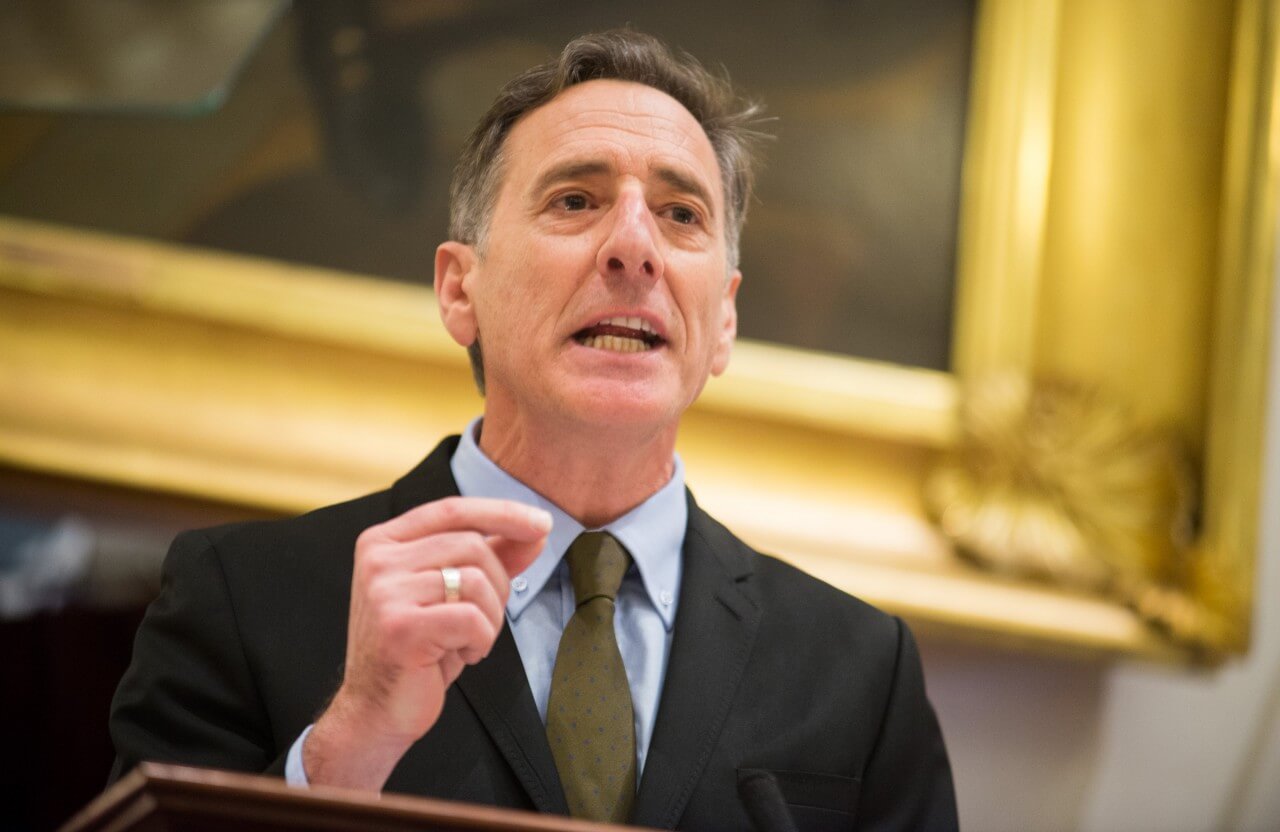Vermont, as with many other U.S states. has faced an epidemic of drug use and addiction; the difference between them and others is a Governor who sees the solution to be funding and treatment as opposed to the road most travelled of criminalization and punishment. His approach has not proven perfect nor has it eradicated the opiate addiction that has savaged the state for years, it has however demonstrated a new way of doing things one that can and has saved lives.

When elected, Governor Peter Shumlin dedicated the entire State of his State address to the issue of opiate abuse and addiction. He made a commitment to tackle the issue head on and he has to date fulfilled this commitment. Six months after his address he signed bills and executive orders which included $6.7million towards the setting up of ‘hub & spoke’ treatment program of central facilities and small treatment outposts. Bills also included the establishment of a medication assisted addiction therapy program, tougher sentencing for drug traffickers and new regulations for prescribing and monitoring prescription drugs. One of the most significant changes made is allowing people picked up by police the option to avail of treatment rather than criminal prosecution. His approach has been very much treatment focused but it has also seen a shift away from criminalising users and instead looks at challenging the sources, such as traffickers and pharmaceutical companies.
A lot of the interviews given by Governor Shumlin show a clear judgment on the Food & Drug Administration. He rightly believes that people’s opiate addictions are beginning with the use of drugs such as Oxytocin as well as other pain relief medication. Such drugs are being poorly regulated and despite recommendations regarding potency and potential for addiction the FDA have continued to allow large pharmaceutical companies to make millions with little regard for the devastation being caused. Such drugs are readily available across America, but when they are moved to the streets the price is extremely high with tablets being sold for $80. This is where heroin comes into the equation; it is much cheaper and very accessible. An individual can buy heroin on the street for a fraction of the cost and continue to feed their addiction.
The successes and failures in the new system implemented in Vermont have shown that addressing the opiate issues requires a partnership. It is essential to have all players on board form law enforcement, the judiciary, health care, recovery & treatment experts as well as regulatory bodies. A report published in January of this year highlighted what had worked in Vermont and what still needed to be done. “The Effectiveness of Vermont’s System of Opioid Addiction Treatment” report showed that significant progress had been made through improved access to care and treatment programs. The adoption of prevention and intervention strategies has also proven successful with decreases in the number of people becoming and staying addicted to opioids. The biggest obstacle that the state has faced in the fight against opiates, is recruitment and retention of a treatment recovery workforce. Investments have been made however there is still a notable shortage of expertise and licensed practitioners in line with the growing demand for treatment.
So is Vermont winning this fight? Despite the comprehensive and strategic steps taken, unfortunately they are not. Deaths from prescription opioids have fallen over the course of the new system but deaths from heroin have risen as it is cheaper and more readily available. Survivals and deaths from both types of drugs have probably levelled out, giving the system a small success in terms of lives saved. It is still important to recognize the steps that have been taken and the excellent work that is being done by all players in the system from law enforcement to treatment facilities. Shumlin himself claims that if nothing else “we’ve changed the conversation”. Stigma surrounding addiction is being reduced and more and more individuals previously suffering in silence are now coming forward to seek treatment. It has been recognized as a legitimate problem and one that must be treated within the health care system not the judicial system. Progress has been made but as of yet Vermont has not won the fight against opiates.
Sources:
http://www.huffingtonpost.com/entry/vermont-heroin_55e4768de4b0aec9f353dc95
http://legislature.vermont.gov/assets/Legislative-Reports/Opioid-system-effectiveness-1.14.15.pdf


